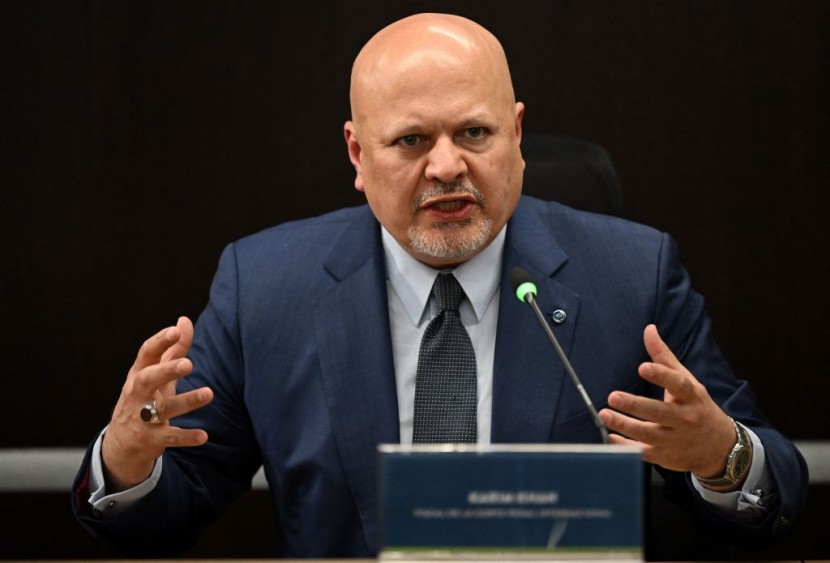During a recent briefing to the UN Security Council, the prosecutor of the International Criminal Court presented a compelling case, stating that there is strong evidence to suggest that various parties involved in Sudan's current conflict are engaging in criminal activities in the troubled Darfur region.
Karim Khan, who recently visited neighboring Chad where tens of thousands of people from Darfur have sought refuge, expressed concern about the situation. He highlighted the fears of those he met in refugee camps, who worry that Darfur will be overlooked and forgotten.

The government of Sudan was strongly encouraged to grant multiple-entry visas to the investigators and promptly respond to the 35 requests for assistance.
The prosecutor expressed strong disapproval of the government's failure to cooperate with the ICC. According to him, despite the government's initiatives to set up a central hub for the Court and provide single-entry visas, it has failed to address 35 appeals for help.
The military-led government following the coup has significantly reduced the level of cooperation that was previously established by the civilian government to support the investigations of the ICC in Darfur. In addition, the military had expressed their opposition to the transfer of al-Bashir and other high-ranking officials, such as Harun, who is also facing charges related to the same crimes as the militia leader Ali Kushayb, who is currently being tried.
Sudan's ambassador Al-Harith Idris has strongly denied the allegations of ICC non-cooperation, stating that his country is actively working with the Court. He mentioned that all the documents discovered have been handed over to the Prosecutor.
Idris expressed concerns about the ICC's assessment of cooperation, highlighting the need to take into account the strategic engagement and operational realities on the ground.
In addition, he provided a comprehensive account of the attacks carried out by the Rapid Support Forces and their allied militias, which notably included the armed assaults on the country's second-largest commercial center on December 15. He alleged that these militias were involved in the recruitment of child soldiers and the hiring of foreign mercenaries from neighboring countries and the Sahel region.
Per Sudan Tribune, the Sudanese representative also alleged that the United Arab Emirates (UAE) has been supporting these militias and providing them with weapons. Referring to Article 51 of the UN Charter, the representative from Sudan emphasized that Sudan asserts its right to self-defense and firmly denies any accusations of its armed forces' participation in heinous crimes.
Sudan War Crimes
Last April, Sudan was thrown into turmoil as tensions between the military, led by Gen. Abdel Fattah Burhan, and the Rapid Support Forces paramilitary, commanded by Mohammed Hamdan Dagalo, escalated into violent clashes in Khartoum and other parts of the country.
The prosecutor announced in July that he would be investigating potential war crimes in Darfur amid the ongoing conflict in Sudan between the country's military and the RSF. The conflict started in April and has continued to escalate across the country, showing no signs of abating in the near future.
Darfur, located in the western region of Sudan, has unfortunately witnessed extensive war crimes in the past, resulting in the tragic loss of hundreds of thousands of civilian lives and the displacement of millions. Omar al-Bashir, the former longtime leader of Sudan, was indicted in 2009 for allegedly being responsible for directing the atrocities.
An urgent message was delivered by Khan to the UN Security Council, highlighting the critical situation in Sudan as conflicts continue to devastate the country.
The region of Darfur, which experienced widespread violence and atrocities in 2003, has become a focal point of the ongoing conflict. It has unfortunately become a battleground for ethnic violence, with paramilitary forces and Arab militias targeting African ethnic groups.
According to the United Nations, the ongoing conflict has resulted in the displacement of more than 7 million individuals and caused the tragic loss of 12,000 lives. According to local doctors' groups and activists, the actual number of deaths is significantly higher.
In 2005, the Security Council referred the situation in Darfur to the ICC, and prosecutor Khan has emphasized that the court still maintains a mandate under that resolution to investigate crimes in the expansive region.
In his address to the council, he stated that, according to the findings of his office, there is reason to believe that crimes under the Rome Statute are currently taking place in Darfur, involving the Sudanese armed forces, the Rapid Support Forces, and associated groups.
Accroding to AP News, the ICC was established by the Rome Statute in 2002 with the purpose of investigating and addressing the most severe crimes committed worldwide, including war crimes, crimes against humanity, genocide, and the crime of aggression.
Related Article : ASEAN Foreign Ministers Meet in Laos to Address Issues in Myanmar, China








